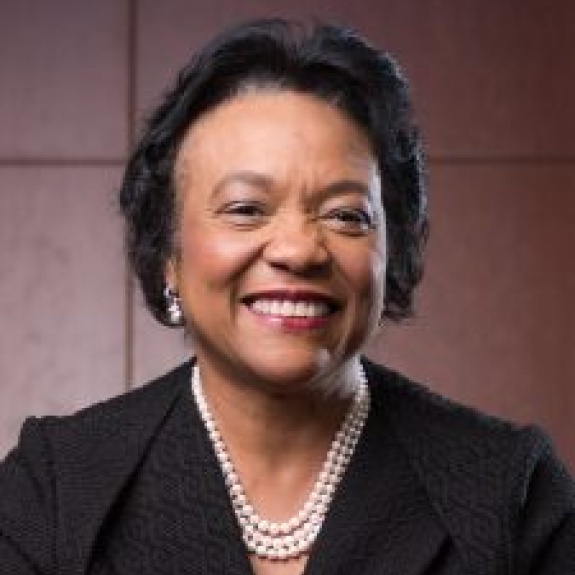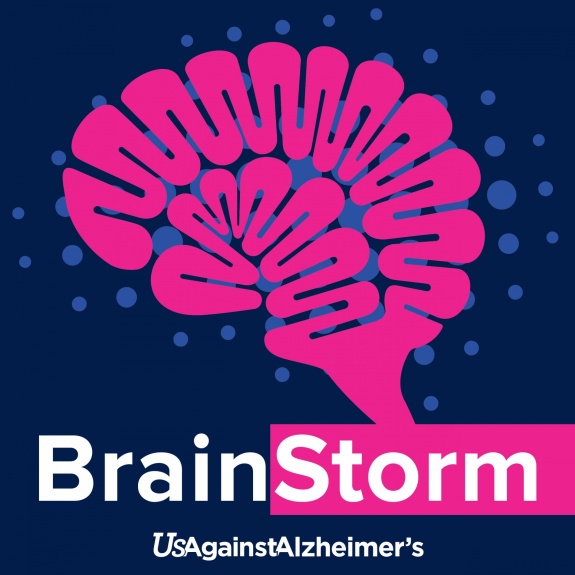Subscribe on your favorite player
Listen on Apple Podcasts Listen on Spotify Listen on Stitcher Listen on Google PodcastsAlzheimer's Clinical Trials & Barriers Among Diverse Communities - Dr. Goldie Byrd, Daisy Duarte & Valerie Smith

About This Episode
September’s Alzheimer’s Talks focused on the importance of clinical trials, particularly to better understand the motivations of and barriers to participation among diverse communities. This call was hosted by Jason Resendez, director of the LatinosAgainstAlzheimer’s network, and Dr. Goldie Byrd, Director of the Center for Outreach in Alzheimer’s Aging and Community Health at North Carolina A&T State University.
Dr. Byrd’s work focuses on Alzheimer’s in African American communities, both genetic research and also her center’s priority on community engagement, specifically to involve underrepresented populations in clinical trials and research. They were joined by two very special guests, Daisy Duarte and Valerie Smith, both of whom have volunteered for clinical trials and are also caregivers for loved ones with Alzheimer’s or memory loss. They shared their experiences, and offered insights into the importance of taking part in research and engaging caregivers and patients throughout the research process.
CLICK THE PLAY BUTTON AT LEFT TO HEAR THE DISCUSSION.
Key Highlights
We need to focus on underrepresented communities in research
Alzheimer’s occurs significantly more often in African Americans and Latinos than in non-Hispanic whites, yet they are underrepresented in clinical trials and research. Community engagement, outreach, and education are crucial to involve underrepresented populations in clinical trials. We need everyone involved so we can make sure a possible treatment works for different groups.
“We’ve been able to advance the science in so many disease areas and we really need to do the same in Alzheimer’s. That takes the engagement of all communities, particularly those who are underrepresented.” – Jason Resendez
Better outreach could mean more participation in clinical trials
Studies have often not had diverse and representative samples. Dr. Byrd’s team has done significant work to better understand what it would take for individuals to participate in a study and the barriers to participation—especially by establishing trust and reducing stigma.
Other suggestions from our guests to increase participation include: involving family members; getting local organizations involved; adding incentives to participate; integrating culture-based activities like food or music; using language that everyone can understand; increasing awareness about Alzheimer’s among younger members of the community; and encouraging doctors who diagnose patients with the disease to share information about clinical trials.
Our guests decided to participate in a clinical trial to help researchers better understand Alzheimer's and to speed the search for a cure, particularly for their family members.
“I hope that this clinical trial that I’m in is the one that finds a cure.” – Daisy Duarte
Ready to volunteer for a study?
Check out Antidote, a tool that can quickly match you with clinical trials in your area.
Your feedback matters
The audience during the call, provided their input on three questions relevant to the discussion:
(1) Which type of Alzheimer’s-related research would you most be interested in participating in?
(2) Would the inclusion of culture-based activities (such as salsa dancing, music, traditional foods)into Alzheimer’s research make participation more appealing to you?
(3) Having learned about or seen the impact of Alzheimer’s on family and friends, what one thing concerns you the most about getting the disease?
Preliminary results indicate that people are most interested in participating in Alzheimer’s-related research around lifestyle modification to prevent Alzheimer’s disease; they would be interested in the inclusion of culture-based activities; and they are most concerned that there are no treatments or cures yet. For a fuller description of the feedback, please see the teleconference transcript.
If you missed the call, please click here to provide your answer to these three questions.
Thank you to Dr. Byrd, Daisy Duarte, and Valerie Smith for sharing their experiences with clinical trials and their ideas for engaging African Americans and Latino populations. This call was in collaboration with the Alzheimer’s and Dementia Disparities Engagement Network (ADDEN), a program partially funded through a Patient-Centered Outcomes Research Institute (PCORI) Eugene Washington Engagement Award.
